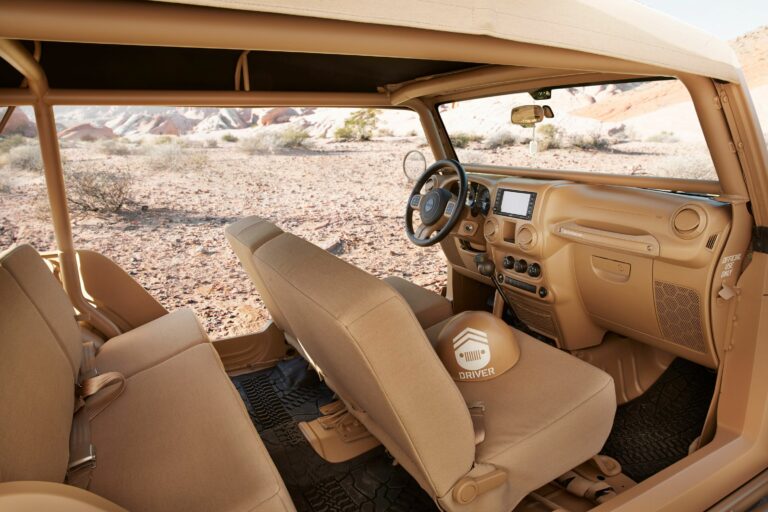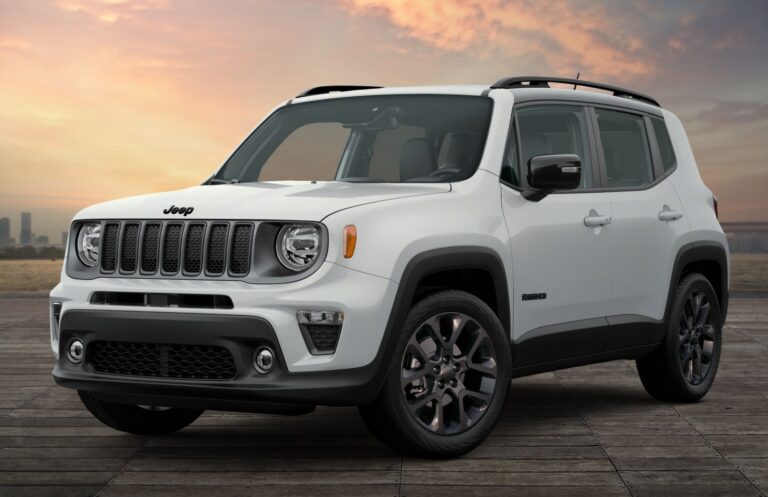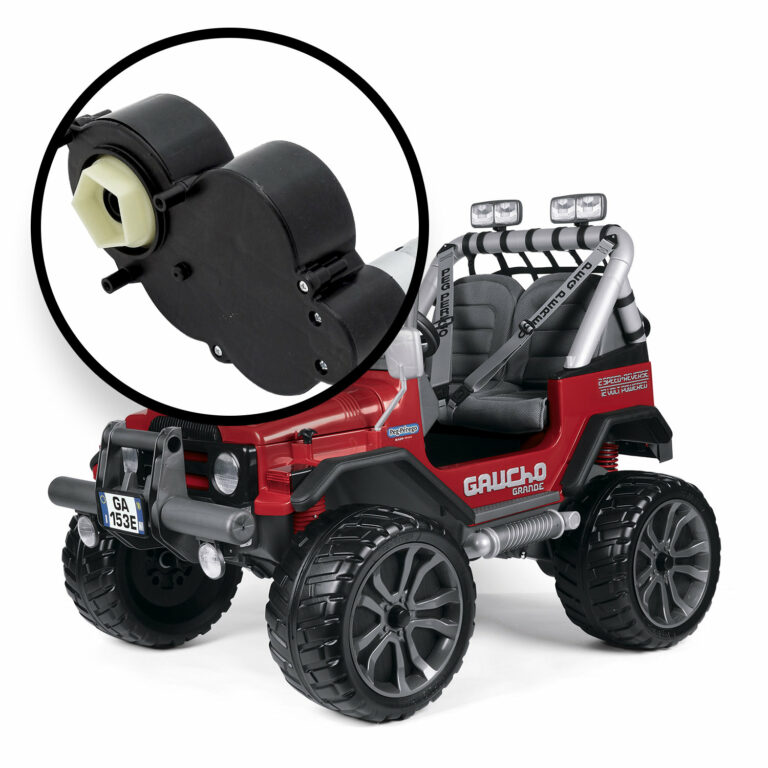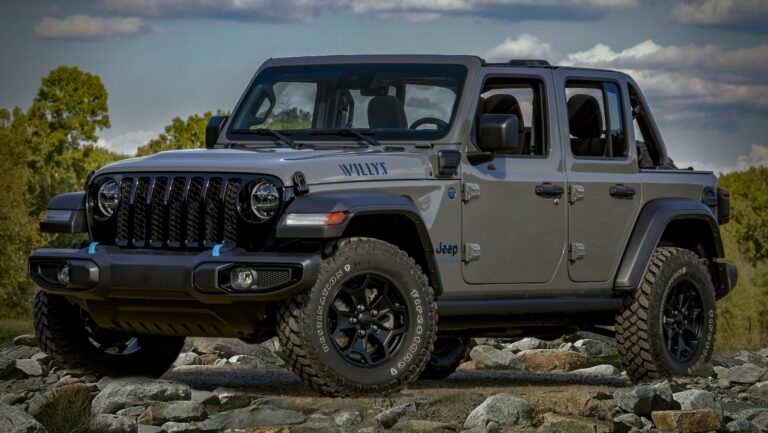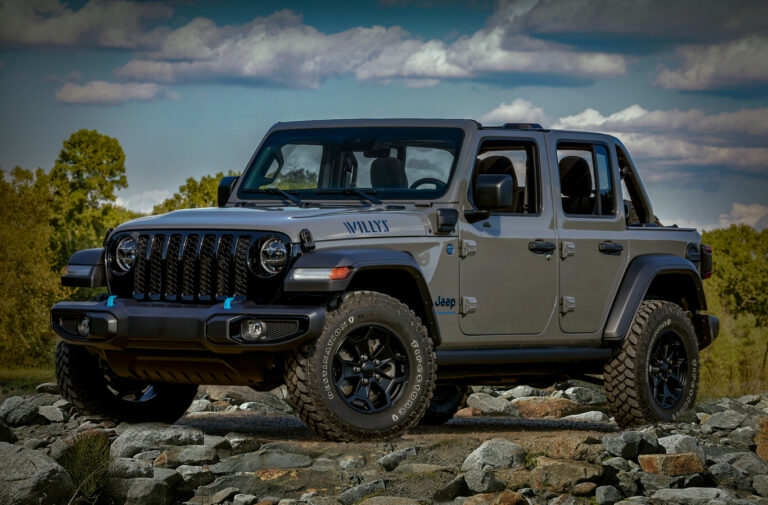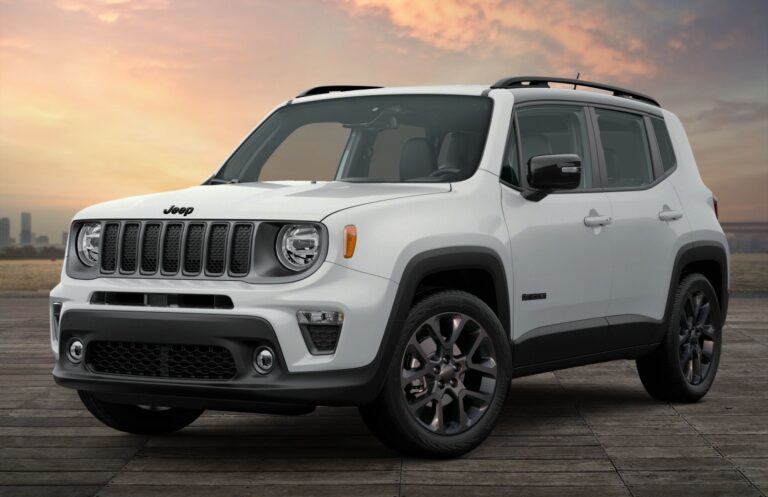Best Lease Deals For Jeep Grand Cherokee: Your Ultimate Guide
Best Lease Deals For Jeep Grand Cherokee: Your Ultimate Guide jeeps.truckstrend.com
The allure of a brand-new vehicle, especially one as capable and refined as the Jeep Grand Cherokee, is undeniable. But for many, the traditional path of outright purchase or long-term financing might not be the most appealing or financially savvy option. This is where leasing comes into play, offering a flexible and often more affordable way to experience the latest models. For the iconic Jeep Grand Cherokee, renowned for its blend of rugged capability, luxurious comfort, and cutting-edge technology, securing the "best lease deal" can transform a dream vehicle into an accessible reality.
Leasing a Jeep Grand Cherokee means you’re essentially paying for the depreciation of the vehicle over a set period, rather than its full purchase price. This typically translates to lower monthly payments compared to buying, allowing you to enjoy a new Grand Cherokee every few years, often under warranty, and without the long-term commitment of ownership. But navigating the world of lease deals can be complex. This comprehensive guide will equip you with the knowledge and strategies to identify, negotiate, and ultimately secure the best lease deal for your ideal Jeep Grand Cherokee.
Best Lease Deals For Jeep Grand Cherokee: Your Ultimate Guide
Understanding the Anatomy of a Great Lease Deal
Before diving into the hunt, it’s crucial to understand the core components that dictate a lease deal’s attractiveness. A "great" lease deal isn’t just about the lowest monthly payment; it’s about the overall value proposition, balancing cost, terms, and the vehicle itself.
- MSRP (Manufacturer’s Suggested Retail Price): This is the sticker price. While you’re leasing, the MSRP still plays a role as it’s the starting point for calculating depreciation.
- Capitalized Cost (Cap Cost): This is the agreed-upon selling price of the vehicle for the lease. It’s the most crucial number to negotiate, as a lower cap cost directly reduces your monthly payments. This can be lower than MSRP due to negotiation or incentives.
- Residual Value: This is the projected value of the vehicle at the end of the lease term, expressed as a percentage of the MSRP. A higher residual value means less depreciation, which translates to lower monthly payments. Jeep Grand Cherokees generally hold their value well, which is a positive for leasing.
- Money Factor: This is essentially the interest rate on your lease, expressed as a very small decimal (e.g., 0.00020). To convert it to an approximate annual percentage rate (APR), multiply by 2400 (0.00020 x 2400 = 0.48% APR). A lower money factor is always better.
- Lease Term: Typically 24, 36, or 48 months. Shorter terms usually have higher monthly payments but higher residual values. Longer terms spread depreciation over more months, potentially lowering payments, but the residual percentage might be lower.
- Mileage Allowance: Standard leases offer 10,000, 12,000, or 15,000 miles per year. Exceeding this limit incurs overage fees (typically $0.15-$0.25 per mile), so accurately assessing your driving habits is vital.
- Due at Signing: This includes your first month’s payment, acquisition fee, cap cost reduction (down payment), security deposit (sometimes waived), and taxes/fees. Aim for a low "due at signing" to minimize upfront costs and risk.

Factors Influencing the Best Lease Deals
Lease deals are dynamic, shifting based on a multitude of factors. Timing, market conditions, and your personal financial standing all play significant roles.
- Manufacturer Incentives: Automakers frequently offer special lease programs, including reduced money factors, higher residual values, or lease cash (a form of capitalized cost reduction). These are often tied to specific models, trim levels, or regions and are the cornerstone of truly exceptional deals.
- Dealership Incentives & Inventory: Dealers might offer additional discounts to move specific inventory, especially slow-selling models or vehicles that have been on the lot for a while. End-of-month, end-of-quarter, or end-of-year pushes are prime times for dealers to meet sales quotas, potentially leading to more aggressive pricing.
- New Model Year Releases: As new model years arrive, previous year models often see substantial lease incentives to clear out inventory. This can be an excellent opportunity to lease a well-equipped Grand Cherokee at a discount.
- Your Credit Score: A strong credit score (typically 700+) is paramount to securing the best money factor and potentially waiving a security deposit. Lenders offer their most competitive rates to low-risk borrowers.
- Trim Level & Options: While a fully loaded Grand Cherokee Summit Reserve will have a higher MSRP and thus a higher monthly payment, certain trims might have better residual values or specific manufacturer incentives, making them proportionally better lease deals. The Grand Cherokee 4xe (plug-in hybrid) might also have unique incentives related to its electrified powertrain.
How to Find and Negotiate the Best Lease Deals
Finding the "best" deal requires diligence, research, and effective negotiation.
-
Research Current Offers:
- Manufacturer Websites: Start with Jeep’s official website. They usually list current national and regional lease specials.
- Third-Party Lease Aggregators: Websites like Edmunds, Leasehackr, and LeaseCompare are invaluable resources. They track current money factors, residual values, and reported deals, allowing you to compare across different models and trims. Leasehackr’s forum, in particular, often has users sharing real-world negotiated deals.
- Dealership Websites: Browse local dealership sites for their specific lease specials. Be wary of deals advertised with large "due at signing" amounts.
-
Understand Your Target Vehicle:
- Trim Level: Decide which Grand Cherokee trim best suits your needs and budget (e.g., Laredo for value, Limited for popular features, Overland for luxury, Trailhawk for off-road prowess, Summit for ultimate refinement, or the 4xe for efficiency).
- Options: Identify must-have options versus nice-to-haves. Remember, every option adds to the capitalized cost.
-
Negotiate Like a Buyer, Lease Like a Leaser:
- Negotiate the Selling Price (Cap Cost) First: Treat the lease as if you’re buying the car. Get the dealer to agree on the lowest possible selling price before discussing lease terms. This is the most impactful negotiation point.
- Know the Money Factor & Residual: Armed with information from Edmunds or Leasehackr, you’ll know the baseline money factor and residual value offered by the manufacturer. Dealers can mark up the money factor slightly, so challenge any excessively high rates. You cannot negotiate the residual value, as it’s set by the leasing company.
- Focus on Total Drive-Off & Monthly Payment: Once the cap cost, money factor, and residual are established, then discuss the "due at signing" amount and the monthly payment. Aim to minimize the "due at signing" to just the first month’s payment and essential fees, avoiding large "capitalized cost reductions" (down payments) on a lease.
- Get Multiple Quotes: Contact at least 3-5 dealerships, ideally through their internet sales departments. Pit them against each other (politely) to get the best offer. Get all quotes in writing.
-
Test Drive & Inspect: Always test drive the exact trim you’re interested in. If leasing a specific VIN, inspect it thoroughly for any pre-existing damage.
Benefits of Leasing a Jeep Grand Cherokee
Leasing a Grand Cherokee offers several distinct advantages over purchasing, making it an attractive option for many drivers.
- Lower Monthly Payments: As you’re only paying for depreciation, lease payments are typically significantly lower than loan payments for the same vehicle.
- Access to New Models Frequently: Lease terms often align with new model cycles (2-3 years), allowing you to drive the latest Grand Cherokee with the newest technology and features every few years.
- Always Under Warranty: For typical lease terms (24-36 months), your Grand Cherokee will almost certainly be covered by the factory bumper-to-bumper warranty, minimizing out-of-pocket repair costs.
- Potentially Lower Repair Costs: Beyond warranty, you avoid the major maintenance costs that often arise as a vehicle ages (e.g., tire replacement, major component wear) since you return the car before these typically become an issue.
- Simplified End-of-Term Process: At the end of the lease, you simply return the vehicle (subject to mileage and wear-and-tear limits) and walk away, or lease another new vehicle. You avoid the hassle of selling or trading in a used car.
- Tax Advantages (for Businesses): For business owners, lease payments can often be deducted as a business expense, offering tax benefits not available with a purchase.
Important Considerations & Potential Challenges
While appealing, leasing isn’t without its caveats. Being aware of potential pitfalls can help you avoid costly surprises.
- Mileage Limits: This is the most common concern. If you consistently drive more than 10,000-15,000 miles per year, overage fees can quickly add up. Be realistic about your driving habits.
- Wear and Tear: Lease agreements specify acceptable "normal wear and tear." Excessive damage, dents, scratches, or worn tires beyond these limits will result in charges at lease end. Consider a pre-inspection to address issues beforehand.
- Early Termination Penalties: Breaking a lease early is almost always very expensive. If your circumstances might change significantly, a lease might not be the best option.
- No Equity Building: Unlike buying, you don’t own the vehicle and therefore don’t build equity. Your payments are simply for the use of the car.
- Insurance Requirements: Leasing companies often require higher insurance coverage (e.g., higher liability limits, specific comprehensive/collision deductibles) than you might otherwise choose.
- Sales Tax Implications: Sales tax on leases varies by state. Some states tax the full capitalized cost upfront, while others tax only the monthly payments. Understand your state’s rules.
Representative Lease Deal Examples for Jeep Grand Cherokee Trims
Disclaimer: The following table provides representative examples of what a competitive lease deal might look like. Actual lease deals are highly dynamic and depend on current manufacturer incentives, regional offers, specific vehicle VINs, your credit score, and ongoing market conditions. These figures are illustrative and should not be taken as guaranteed offers. Always verify with a dealership and the official lease contract.
| Trim Level | MSRP (Approx.) | Selling Price (Negotiated) | Lease Term (Months) | Mileage Allowance (Miles/Year) | Money Factor (Approx. APR) | Residual Value (%) | Due at Signing (Approx.) | Estimated Monthly Payment (Excl. Tax) |
|---|---|---|---|---|---|---|---|---|
| Grand Cherokee Laredo | $40,000 | $37,000 | 36 | 10,000 | 0.00020 (0.48%) | 60% | $2,000 | $410 |
| Grand Cherokee Limited | $48,000 | $44,500 | 36 | 12,000 | 0.00030 (0.72%) | 58% | $2,500 | $520 |
| Grand Cherokee Overland | $60,000 | $56,000 | 36 | 12,000 | 0.00040 (0.96%) | 57% | $3,000 | $680 |
| Grand Cherokee 4xe (Limited) | $64,000 | $59,500 | 36 | 10,000 | 0.00010 (0.24%) | 59% | $3,500 | $650 |
| Grand Cherokee Summit | $70,000 | $65,000 | 36 | 15,000 | 0.00045 (1.08%) | 56% | $4,000 | $820 |
Note on "Due at Signing": This typically includes the first month’s payment, acquisition fee, and government fees/taxes. A lower "due at signing" is generally preferable, minimizing your upfront cash outlay.
Practical Advice and Actionable Insights
- Document Everything: Get all quotes, calculations, and agreed-upon terms in writing before signing any contract.
- Read the Fine Print: Understand every clause in the lease agreement, especially regarding mileage overage, wear and tear, and early termination.
- Don’t Rush: Take your time. A good deal is worth waiting for. If a dealer pressures you, be prepared to walk away.
- Consider a Lease Broker: For a fee, a lease broker can often find excellent deals by leveraging their network and knowledge of current incentives.
- Assess Your Needs: Honestly evaluate your driving habits and financial stability. If you anticipate significant mileage or life changes, a lease might not be suitable.
Conclusion
Leasing a Jeep Grand Cherokee can be an incredibly rewarding experience, offering the prestige, capability, and comfort of a premium SUV with the financial flexibility of lower monthly payments. By understanding the key components of a lease, researching current market conditions, and employing smart negotiation tactics, you can unlock truly competitive deals. The "best lease deal" isn’t a fixed price but rather a dynamic interplay of factors that you, as an informed consumer, can influence. Armed with this knowledge, you are well-equipped to navigate the leasing landscape and drive home in your ideal Grand Cherokee, enjoying its blend of rugged elegance for years to come without the long-term commitment of ownership.
Frequently Asked Questions (FAQ)
Q1: Can I negotiate the lease price of a Jeep Grand Cherokee?
A1: Absolutely! You should always negotiate the "capitalized cost" (effectively the selling price of the vehicle) just as you would if you were buying it. A lower capitalized cost directly translates to lower monthly payments.
Q2: What credit score do I need to get the best lease deals?
A2: Generally, a credit score of 700 or higher is considered excellent and will qualify you for the lowest money factors (interest rates) and potentially waive the need for a security deposit. Scores below 650 may result in higher money factors or require a larger security deposit.
Q3: What happens at the end of a Jeep Grand Cherokee lease?
A3: At lease end, you typically have three options:
- Return the vehicle: Simply turn in the car, pay any outstanding fees (mileage overage, excessive wear and tear, disposition fee), and walk away.
- Purchase the vehicle: You can buy the Grand Cherokee for the residual value stated in your lease agreement.
- Lease a new vehicle: Many lessees choose to trade in their leased Grand Cherokee for a brand new one, starting a new lease agreement.
Q4: Can I buy my leased Grand Cherokee before the lease term ends?
A4: Most lease agreements allow you to purchase the vehicle at any point during the lease. However, the purchase price is usually the sum of the remaining payments plus the residual value, which might not be financially advantageous early in the term due to early termination penalties. It’s best to check your specific lease contract for details.
Q5: What if I go over my mileage limit on my leased Grand Cherokee?
A5: You will be charged an overage fee for every mile exceeding your agreed-upon annual limit. This fee typically ranges from $0.15 to $0.25 per mile. It’s crucial to estimate your annual mileage accurately before signing the lease to avoid these costs.
Q6: Is insurance more expensive on a leased car?
A6: Leasing companies often require higher levels of liability, comprehensive, and collision coverage than you might otherwise choose if you owned the vehicle outright. This is to protect their asset. As a result, your insurance premiums might be slightly higher for a leased Grand Cherokee.
Q7: Are there any hidden fees in a lease deal?
A7: While not "hidden" if you read the contract, some fees might not be explicitly discussed unless you ask. Common fees include:
- Acquisition Fee: An administrative fee charged by the leasing company at the beginning of the lease.
- Disposition Fee: A fee charged at the end of the lease when you return the vehicle.
- Early Termination Fee: A substantial penalty if you break the lease agreement before its term ends.
- Excess Wear and Tear Fees: Charges for damage beyond "normal" wear.
Always ask for a complete breakdown of all fees involved before signing.

